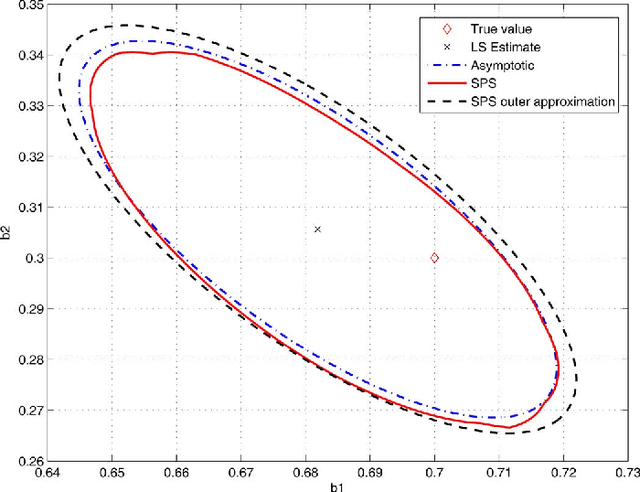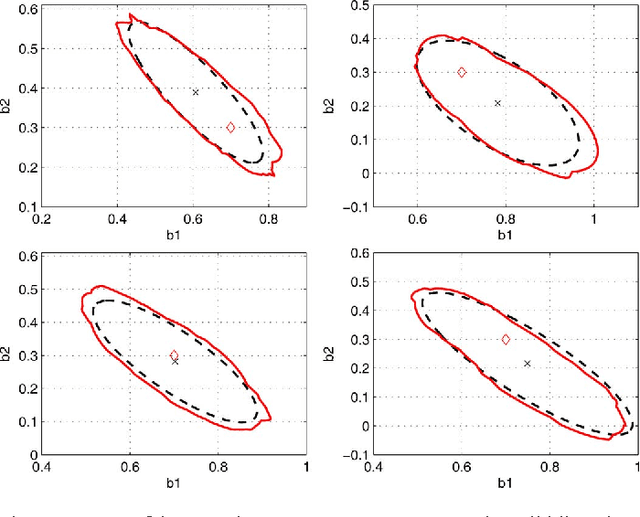Erik Weyer
Signed-Perturbed Sums Estimation of ARX Systems: Exact Coverage and Strong Consistency (Extended Version)
Feb 18, 2024



Abstract:Sign-Perturbed Sums (SPS) is a system identification method that constructs confidence regions for the unknown system parameters. In this paper, we study SPS for ARX systems, and establish that the confidence regions are guaranteed to include the true model parameter with exact, user-chosen, probability under mild statistical assumptions, a property that holds true for any finite number of observed input-output data. Furthermore, we prove the strong consistency of the method, that is, as the number of data points increases, the confidence region gets smaller and smaller and will asymptotically almost surely exclude any parameter value different from the true one. In addition, we also show that, asymptotically, the SPS region is included in an ellipsoid which is marginally larger than the confidence ellipsoid obtained from the asymptotic theory of system identification. The results are theoretically proven and illustrated in a simulation example.
Sign-Perturbed Sums: A New System Identification Approach for Constructing Exact Non-Asymptotic Confidence Regions in Linear Regression Models
Jul 22, 2018



Abstract:We propose a new system identification method, called Sign-Perturbed Sums (SPS), for constructing non-asymptotic confidence regions under mild statistical assumptions. SPS is introduced for linear regression models, including but not limited to FIR systems, and we show that the SPS confidence regions have exact confidence probabilities, i.e., they contain the true parameter with a user-chosen exact probability for any finite data set. Moreover, we also prove that the SPS regions are star convex with the Least-Squares (LS) estimate as a star center. The main assumptions of SPS are that the noise terms are independent and symmetrically distributed about zero, but they can be nonstationary, and their distributions need not be known. The paper also proposes a computationally efficient ellipsoidal outer approximation algorithm for SPS. Finally, SPS is demonstrated through a number of simulation experiments.
* 12 pages, 7 figures, 8 tables, 32 references
 Add to Chrome
Add to Chrome Add to Firefox
Add to Firefox Add to Edge
Add to Edge